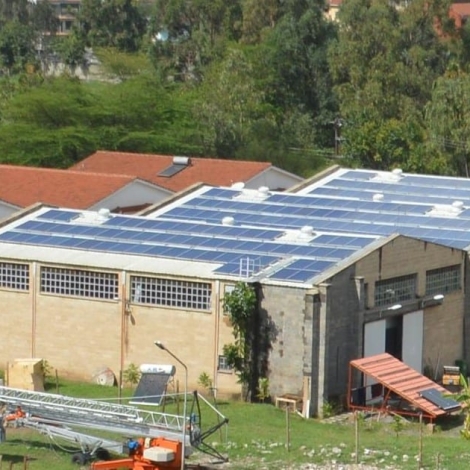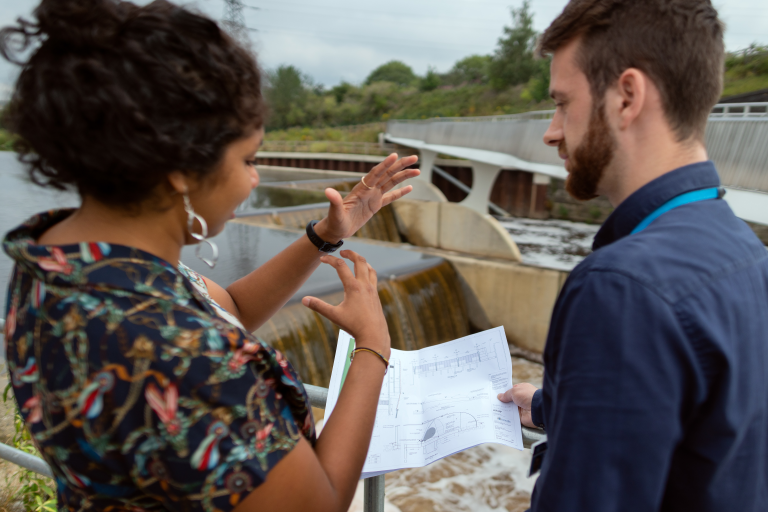Engineering for Change’s Research Fellow Ignatius Waikwa came to our organization while working as a research engineer at Strathmore University’s Energy Research Centre. This is Ignatius’ report on the work the center is carrying out now.
The energy field in Kenya suffers a deficiency of skilled personnel qualified to design, install and effectively maintain modern energy systems. SERC is bridging this gap by providing solar technician and energy efficiency training courses.
Strathmore University Energy Research Centre (SERC) in Nairobi, Kenya was established in 2012 with the aim of carrying out high-quality research. The center offers consultancy services, professional technical and specialized training, laboratory testing services and project development services in the renewable energy sector in Kenya.
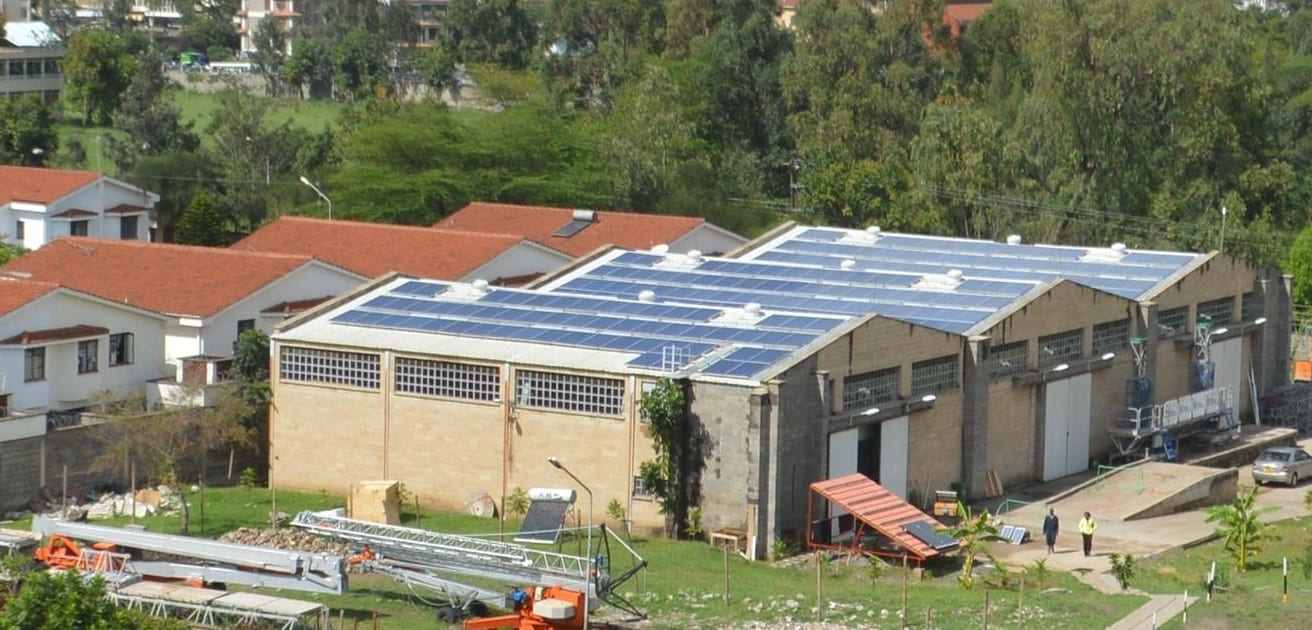
SERC
SERC is accredited by the National Industrial Training Authority (NITA) and recognized by the Energy Regulatory commission to offer training, project development and international standard laboratory testing services on solar photovoltaic components. The energy field in Kenya suffers a deficiency of skilled personnel qualified to design, install and effectively maintain modern energy systems. SERC is bridging this gap by providing solar technician and energy efficiency training courses. To date, more than 600 engineers have been trained from training sessions that have been organized at our solar laboratory.
Training solar technicians for a sustainable energy future
Courses include solar PV, solar grid tie and solar hybrid courses, Energy Manager certification, factory operator training, solar PV product testing and solar water pumping. This is a summary of what they entail.
T1T2 Solar PV Training: This course is a pathway to becoming a licensed solar technician or solar products vendor. The course aims to equip participants with comprehensive know-how for working with photovoltaics, hands-on training with technical components, design optimized PV stand-alone systems and apply for a T2 license from the Energy Regulatory Commission (ERC).
T3 Grid Tie Solar PV Training: This is a pathway to becoming a licensed solar technician or solar products vendor. The course aims at equipping participants with comprehensive know-how for photovoltaics, hands-on training with technical components, designing optimized PV systems, operating and maintaining grid-tied solar PV systems, online monitoring of solar PV systems, designing grid-connected solar PV systems and applying for a T3 license from the Energy Regulatory Commission (ERC).
T3 Hybrid Solar PV Training: A hybrid energy system combines multiple types of energy generation and storage, or uses two or more kinds of fuel to power a generator. A hybrid energy system is a valuable method in the transition away from fossil-fuel based economies. Particularly in the short term, while new technologies to better integrate renewable energy sources are still being developed, backing up renewable generation with conventional thermal electric production can actually help expand the use of renewable energy sources.
Energy Management Training: The training is aimed at giving the participants a broad view on the impact of energy efficiency on the environment and business performance of their facilities. Participants will also be able to learn about what opportunities are available in their facilities and practical ways of tapping into those opportunities. Also of importance is how to ensure that gains made after implementation of energy conservation measures are sustained.
CEM Training: This course is ideal for professionals who seek to acquire skills to become Certified Energy Managers and Auditors. At the end of the course, participants will take a four-hour open book International Certification Exam.
Factory Operators Training: In Kenya, energy and labor at processing factories account for 55 percent of the cost of tea production. Firewood is one of the biggest costs, with the average tea factory using 20,000 cubic meters of firewood annually, which equates to about 60,000 trees. The majority of processing factories are equipped with old equipment (lighting, furnaces, boilers, etc.) and don’t have good energy management policies in place, which means they don’t operate efficiently. This means there is huge potential for them to reduce energy consumption, CO2 emissions, and costs. It is against this backdrop that we have developed a training program for factory operators so as to enlighten them on issues of climate change and energy management.
Solar Water Pumping Training: This program is aimed at giving the participants skills in design and installation of solar PV modules and water pumps (submersive and ground-mounted). The first training, which was a Training of Trainers, was undertaken March 19-23, 2018. This course was conducted in partnership with EU Civil Protection and Humanitarian Aid (ECHO), Oxfam, International Organization for Migration (IOM)and Norwegian Refugee Council (NRC).
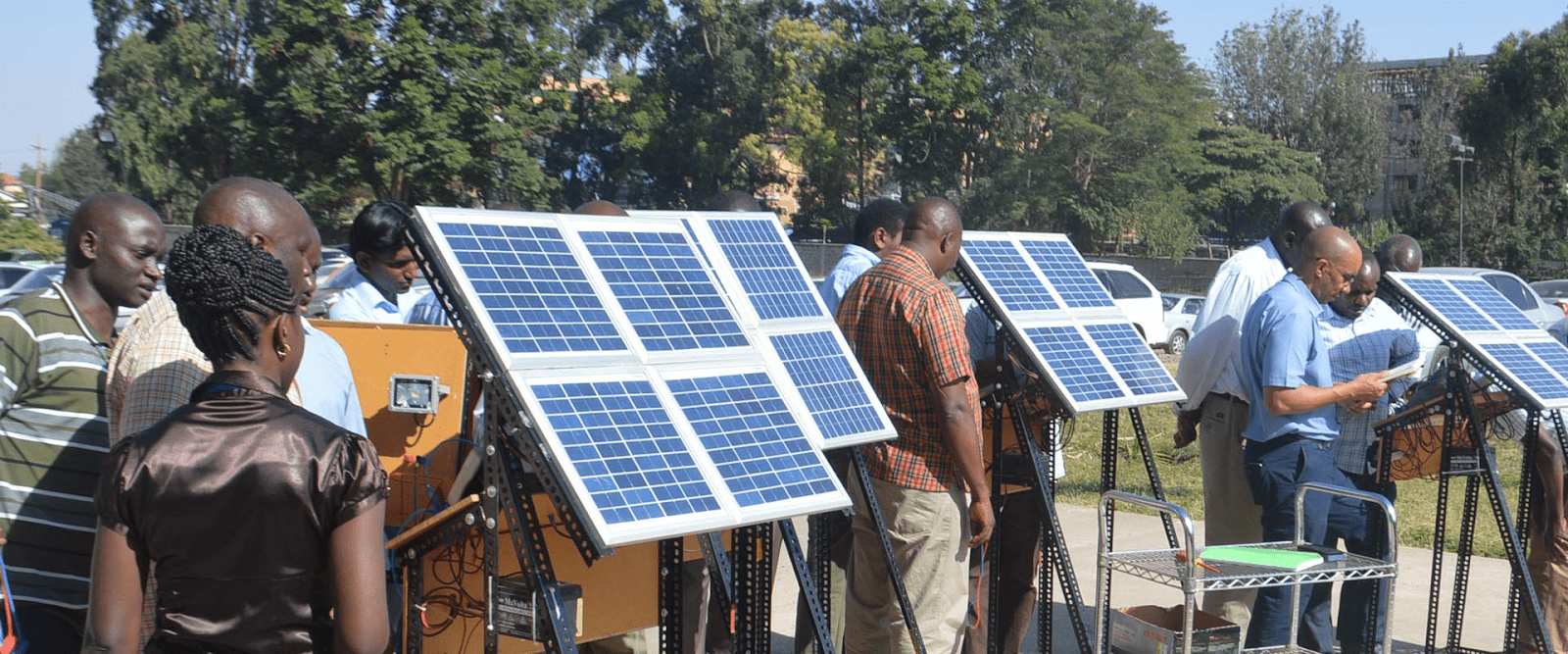
Trainees participate in a practical session.
Within the research center, the Strathmore Solar Testing Laboratory (SSTL) is a quality assurance laboratory for solar PV products sponsored by the German international development organization GIZ. This laboratory tests solar PV modules, charge controllers, luminaires and batteries for pico PV systems. It is working towards achieving ISO 17025 accreditation, after which the lab will be able to offer tests as per the international standard IEC/TS 62257-9-5.
the 600 kW Grid Connected Solar PV rooftop now generates all of university’s electricity, while selling excess power to the national grid
The lab envisions provision of global certification in conjunction with the Kenyan Bureau of Standards while working together with Fraunhofer ISE Testing Laboratory in Germany, the Schatz Energy Research Center in the USA, TERI Solar Lighting Laboratory in India, Lighting Global, and the Global Off-Grid Lighting Association. In Kenya, the lab has partnered with the Kenya Renewable Energy Association to provide voluntary accreditation tests for private sector companies dealing with PV components.
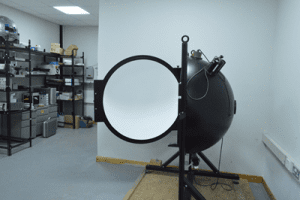
Integrating Sphere in the Solar Testing Lab
The research center also hosts a variety of projects. Completed and commissioned in June 2014, the 600 kW Grid Connected Solar PV rooftop now generates all of university’s electricity, while selling excess power to the national grid under a power purchase agreement (PPA) with Kenya Power. The system is a pilot for electricity net metering in Kenya and serves as a showcase for the practical training of professionals, solar technicians and students. The system is also the biggest commercially viable rooftop solar PV system in Kenya so far.
Additionally, with GIZ’s Pro-Solar Program support, SERC has commissioned a 10kW carport hybrid solar/diesel grid-connected system in the University. This system not only provides additional energy but is incorporated for use in the training of solar technicians. In collaboration with GIZ and the Kwale county government, a 1.6 kW solar battery power plant was designed for installation in Wasini Island in 2014. The aim of the project was to provide the community access to electricity and media (cell phone charging, solar lights and internet) and special needs (deep freezer). This power plant now provides a source of income for the Wasini island community through phone charging, Internet café, photocopying and printing services, selling of cold drinks.
SERC is distributing 500, 7W Fosera solar home systems to households in 10 counties in Kenya to replace kerosene.
SERC is collaborating with the National Commission for Science, Technology and Innovation (NaCoSTI) in carrying out research on the replacement of kerosene lighting systems in the rural areas of Kenya with solar Pico-PV products. Under this project, SERC is distributing 500, 7W Fosera solar home systems to households in 10 counties in Kenya.
Partnership for Enhanced Engagement in Research (PEER), funded by USAID in partnership with GIZ and SERC, are championing the solar PV outreach training module for capacity building of Technical Training Institutes, equipping them to conduct T1, T2 training.
In collaboration with GIZ, a field study was carried out so as to assess the number of street lights required and the best places to install them in Kakuma. The aim was to provide a detailed plan including GPS coordinates for envisaged street lighting. The study assessed the viability of solar standalone street lights, conducted risk analysis and provide recommendations on the most suitable approach for each specific area of the detailed bill of quantities and cost estimates to enable GIZ SIF to make informed decisions on installing solar street lights.
Organizations such as the Strathmore University Energy Research Center are paving the way for local engineers to receive valuable training while providing Kenya with standards implementation and energy generation research.
